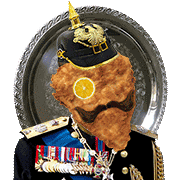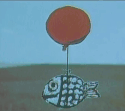|
White Coke posted:1916 pops up in some places I've read, but I haven't seen any primary sources that say 1916 was seen as some kind of point of no return, so I was wondering why multiple people quote this idea like it's a fact. I want to know where this came from, and why it seems to have achieved the level of common knowledge since nobody feels the need to cite a source. I'd need to go back to the library for a source, but my recollection is that there was a specific Railway project slated to complete in 1916 that would have cut the Russian mobilisation time to below what even the optimistic versions of Schlieffen said the Germans needed to defeat France. The reason that threshold matters is because it's the point at which no German Staff Officer can say with a straight face that they have any hope of winning a war. The one plan becomes based on maths that doesn't add up anymore.
|
|
|
|

|
| # ? Apr 23, 2024 18:50 |
|
ChubbyChecker posted:I checked the numbers. The Swedish iron ore was higher grade than elsewhere, so about 60% of the prewar iron for Nazi Germany came from Sweden. It had the most importance during the late -39 and early -40 after the West had stopped trading with Germany and before Germany had conquered Belgium and France. During that critical period about 75% of the German iron came from Sweden. For the rest of the war the percentage was about 20%. Sweden stopped the iron ore trade only in November 1944, so they definitely didn't mind collaborating with the Nazis. To be fair to them they had Nazis to their west in Norway, their east in Finland and their south in Denmark. There was very definitely an element of 'trade with us or we'll occupy your poo poo'.
|
|
|
|
Nenonen posted:"Two years from now our enemy will be undefeatable/will have nukes" sounds like an effective line for any proponents of a pre-emptive strike, it seems. Followed closely by, "Oppose the war? You're an unpatriotic traitor!", yeah.
|
|
|
|
After hearing an interview with military historians working for US military colleges on Age of Napoleon, i’m curious about the relationship between military historians and “actual militaries”. How historically informed are modern militaries? Are some militaries more informed than others...? How historically informed were historical militaries? Have there been interesting outcomes that we know were due to historical knowledge? When do militaries begin studying this history? Is it something that only happens with the creation of general staff? Finally, What’s the relationship between military historians working for actual militaries, and “The Academy”? (am i ignorant to think there’s a distinction?) Has military history shaped other historical disciplines? Has milhist always been more “applied” than other fields? Hope these questions aren’t too meta.
|
|
|
|
Speaking of Napoleonic historians, iirc this guy was mentioned in a previous thread: https://www.abc.net.au/news/2020-12...%20dismembered. He got 12.5 years sentence a few days back.
|
|
|
|
Which level infantry units got .50cal mgs or DshKs in WW2? Was there like a platoon of them in regiment or something?
|
|
|
|
I checked The Sleepwalkers, and another big part of German fears of Russia around that time were due to Russia's strategic interests getting increasingly boxed in in the 1910s. Japan had firmly blocked off the Far East for Russia, and the Anglo-Russian Convention curtailed any attempt by Russia to go south. Coupled with the Franco-Russian Alliance, Germany at the time believed that Russia had only one direction left for expansion and that was west into German and Austrian spheres of interest - doubly alarming given the Russian infrastructure improvements, huge population, and apparently explosive economic growth. German geopolitical planners were very afraid that Russia's enormous growth and military improvements were aimed directly at Germany for lack of anywhere else to direct them, and the feeling that Austria was Germany's only real ally left.
|
|
|
|
I think the point is the [citation needed], though: how is it that we know what Zee Chermans were supposedly thinking?
|
|
|
|
Trin Tragula posted:I think the point is the [citation needed], though: how is it that we know what Zee Chermans were supposedly thinking? People talk. And write. And there are records of these things. Also, we're specifically talking about the time of Kaiser Wilhelm, who was, uh, not the most reticent or secretive guy in the world.
|
|
|
|
Cythereal posted:German geopolitical planners were very afraid that Russia's enormous growth and military improvements were aimed directly at Germany for lack of anywhere else to direct them, and the feeling that Austria was Germany's only real ally left. "Everybody hates us. Better start a war!"
|
|
|
|
CommonShore posted:"Everybody hates us. Better start a war!" Germany didn't start WW1. They told Austria that it should crush Serbia for killing Franz Ferdinand and Germany would support Austria in that endeavor. Problem is, Russia wanted a strong and powerful Serbia as a lever to weaken Austria and the Ottoman Empire to expand Russia's influence into eastern and southeastern Europe, ideally with long-term plans of seizing the Bosphorus to link the Black Sea with the Mediterranean. So Russia backed Serbia, Germany backed Austria, and things went downhill from there. Note that Russia was the first of the major powers to mobilize for war against another of the major powers. Germany mobilized in response to Russia.
|
|
|
|
Cythereal posted:Germany didn't start WW1. They told Austria that it should crush Serbia for killing Franz Ferdinand and Germany would support Austria in that endeavor. Problem is, Russia wanted a strong and powerful Serbia as a lever to weaken Austria and the Ottoman Empire to expand Russia's influence into eastern and southeastern Europe, ideally with long-term plans of seizing the Bosphorus to link the Black Sea with the Mediterranean. So Russia backed Serbia, Germany backed Austria, and things went downhill from there. So what you're saying is yes, Germany started the war.
|
|
|
|
Edgar Allen Ho posted:So what you're saying is yes, Germany started the war. Personally I'd say Serbia and Russia did.  I think the "Germans started the war!" thing is a self-aggrandizing myth from the victorious powers unwilling to take a hard look at the consequences of their geopolitical power games. Cythereal fucked around with this message at 17:21 on Dec 27, 2020 |
|
|
|
Cythereal posted:Personally I'd say Serbia and Russia did. A very curious way of letting Germany off the hook for saying to Austria "go kill a bunch of Serbs to feel good about yourself, we're sure you can do it fast enough to settle the matter before Russia gets involved". Oh no we are mobilising to attack France how could this happen
|
|
|
|
Edgar Allen Ho posted:So what you're saying is yes, Germany started the war. Austria-Hungary with their failure to accept Serbia's near complete capitulation is the most responsible, but beyond that all the major powers were pretty much equally complicit.
|
|
|
|
Austria-Hungary didn't "fail" to accept the capitulation, they never intended to follow through with the terms of the sham ultimatum to begin with, the fact that Serbia didn't reject the ultimatum outright was just a minor inconvenience. So A-H and Germany are definitely the guilty parties here.
|
|
|
|
steinrokkan posted:Austria-Hungary didn't "fail" to accept the capitulation, they never intended to follow through with the terms of the sham ultimatum to begin with, the fact that Serbia didn't reject the ultimatum outright was just a minor inconvenience. That's a curious way of saying "The Serbian government knew about the plot to kill Franz Ferdinand and refused to admit it, and had a long history of officially denying corruption, revanchist terrorism, and ethnic cleansing in their territories to outside observers." Alchenar posted:A very curious way of letting Germany off the hook for saying to Austria "go kill a bunch of Serbs to feel good about yourself, we're sure you can do it fast enough to settle the matter before Russia gets involved". One of Serbia's primary geopolitical goals was to remove Austria as a major power so they could claim some 'Greater Serbia' that existed only in propaganda.
|
|
|
|
Yeah if there's one takeaway I got from Sleepwalkers it's that while it obviously doesn't justify a global war that killed tens of millions, it's a miracle that Serbia didn't kick off a global war even earlier with all the dumb bullshit they had been pulling for years.
|
|
|
|
shallowj posted:After hearing an interview with military historians working for US military colleges on Age of Napoleon, i’m curious about the relationship between military historians and “actual militaries”. As an officer you learn history both in your commissioning source and later during your branch training. Most units have some sort of officer professional development program where a more senior officer instructs his subordinate officers, frequently this is a vignette of a battle that somehow relates to their current mission in some way. Sometimes these involve bringing in a guest speaker which could be an historian if the situation calls for it (like for a staff ride to nearby battlefield). Depending on how old a unit is their headquarters is likely filled with maps, plaques, and other artifacts from past wars/campaigns they were involved in. I'm sure the habit of a commander mentoring his subordinates in this way is nearly as old as warfare itself. I can't remember who this is but I remember reading about a general from antiquity that would wargame the terrain his army crossed with his officers, something you frequently see modern commanders do as well.
|
|
|
|
Cythereal posted:That's a curious way of saying "The Serbian government knew about the plot to kill Franz Ferdinand and refused to admit it, and had a long history of officially denying corruption, revanchist terrorism, and ethnic cleansing in their territories to outside observers." Meanwhile plucky little Austria was just peacefully chilling on its ancestral Bosnian clay, in no way provoking the hostility of its neighbours, while the perfidious Serb schemed just around the corner.
|
|
|
|
ChubbyChecker posted:I checked the numbers. The Swedish iron ore was higher grade than elsewhere, so about 60% of the prewar iron for Nazi Germany came from Sweden. It had the most importance during the late -39 and early -40 after the West had stopped trading with Germany and before Germany had conquered Belgium and France. During that critical period about 75% of the German iron came from Sweden. For the rest of the war the percentage was about 20%. Sweden stopped the iron ore trade only in November 1944, so they definitely didn't mind collaborating with the Nazis. Strategic bombing wasn't very effective at hindering the Nazis war machine, but since Sweden was trading with Germany to make profit, they might have stopped it earlier if they had had to account the cost of rebuilding their cities. And the Allies bombed France killing 70k people, so bombing collaborators wasn't off the table. Sweden was a neutral country, and neutral countries are allowed to do things like trade. They weren't an occupied country like France. That would not be bombing Germany with Swedish collateral damage, but simply declaring war on Sweden. Operationally, the Swedish iron mines are at out of range of 1940 bombers, and attacking baltic shipping means traipsing into German airspace and doing low-level attack. Not really viable. Cythereal posted:That's a curious way of saying "The Serbian government knew about the plot to kill Franz Ferdinand and refused to admit it, and had a long history of officially denying corruption, revanchist terrorism, and ethnic cleansing in their territories to outside observers." When you don't understand what "citation needed" means but know exactly which defunct regime to defend
|
|
|
|
steinrokkan posted:Meanwhile plucky little Austria was just peacefully chilling on its ancestral Bosnian clay, in no way provoking the hostility of its neighbours, while the perfidious Serb schemed just around the corner. Oh, you mean the Bosnia that Austria had occupied for twenty years and Serbia's own ally Russia told Austria they could annex - then lied to the world when Austria did just that, calling it an unprovoked act of aggression?  One of the hilarious bits from The Sleepwalkers is the documents from the Serbian government calling Franz Ferdinand a grave threat not because he was a militaristic hardliner, but because he was a reformer who threatened to reduce the ethnic tensions inside Austria-Hungary that Serbia was hoping to exploit. As for 'the perfidious Serb scheming just around the corner'... yeah, that's actually a pretty accurate description of early 20th century Serbia and its history through the Balkan Wars. Slim Jim Pickens posted:When you don't understand what "citation needed" means but know exactly which defunct regime to defend How's that Greater Serbia working out for you?
|
|
|
|
Don't turn events from over a century ago into personal attacks, thanks
|
|
|
|
I see, so you play geopolitical games until Russia betrays you in a foul geopolitical game, then you accuse random people of being Serbs, and then you get the money?
|
|
|
|
Slim Jim Pickens posted:Sweden was a neutral country, and neutral countries are allowed to do things like trade. They weren't an occupied country like France. That would not be bombing Germany with Swedish collateral damage, but simply declaring war on Sweden.
|
|
|
|
Alchenar posted:I'd need to go back to the library for a source, but my recollection is that there was a specific Railway project slated to complete in 1916 that would have cut the Russian mobilisation time to below what even the optimistic versions of Schlieffen said the Germans needed to defeat France. This jives with my memory too, but I also can't cite a source atm. Something in particular about Russia finishing double-tracking a bunch of railroads into Russian Poland/Galicia to considerably speed up their mobilization to the Austrian/German frontiers. More rapid mobilization would make Germany fight a two-front war from the outset instead of the two, one-front wars in rapid succession the German High Command saw as their best chance of victory vs the Franco-Russian alliance.
|
|
|
|
I feel like blaming Germany solely for WW1 ignores (or worse, purposefully plays down) the fact that all the great powers had been readying up for war for a while and had set up a system of alliances specifically to escalate whatever conflict came next into something where somebody gets to destroy their rival and be the star power of the next great rebalancing of Europe. France in particular wanted to get revenge on Germany for the last war, while Britain wanted to muck about and be dominant over the continent. feedmegin posted:To be fair to them they had Nazis to their west in Norway, their east in Finland and their south in Denmark. There was very definitely an element of 'trade with us or we'll occupy your poo poo'. I wonder if Scandinavia would've suffered less overall if they held down a united front against the Germans. Not that I'd really expect neighboring countries to instinctively band together against outside threats rather than prioritizing local rivalries.
|
|
|
|
SlothfulCobra posted:while Britain wanted to muck about and be dominant over the continent. No? It didn't want anyone else to be dominant over the continent, especially the land superpower doing its best to build up a fuckoff huge navy, which is a different statement.
|
|
|
|
I think I distinctly remember the 1916 number as well from Paul Kennedy's work The Rise and Fall of the Great Powers and how from an outside observer perspective, Russia's population growth in 1910, its industrialization and railroad construction, and the size of its military and navy expansion programs were scaring the General Staff shitless and causing them a constant amount of sleepless nights over it. Paul goes into all the ways Imperial Russia was extremely actually very fragile of course but its easy for the contemporary Germans to gloss over weaknesses that are harder to observe from the outside. SlothfulCobra posted:I feel like blaming Germany solely for WW1 ignores (or worse, purposefully plays down) the fact that all the great powers had been readying up for war for a while and had set up a system of alliances specifically to escalate whatever conflict came next into something where somebody gets to destroy their rival and be the star power of the next great rebalancing of Europe. IIRC I remember the German ambassador to Russia begging his counterpart to stay out. And also how very briefly there was a moment where the Kaiser and Tsar Nicholar were exchanging letters to maybe figure a way out for both. I think from what I remember of the July crisis its yeah, it was a multitude of things although I think like, on balance though there was a factor of Germany "loving around and finding out" to it though. I don't think it was Germany trying to get a war with France though, I think the Kaiser had encouraged Austria to go in thinking if Austria could act quickly enough world opinion would back them up, but Austria took a long time to get its house in order and military preparations complete. Raenir Salazar fucked around with this message at 18:50 on Dec 27, 2020 |
|
|
|
feedmegin posted:No? It didn't want anyone else to be dominant over the continent, especially the land superpower doing its best to build up a fuckoff huge navy, which is a different statement. And also to contain Russia, which could be an enormous threat to Britain's colonial holdings, especially to India. Containing Russia was the main reason for the Anglo-Russian Convention, hoping to mute the Russian threat via diplomacy.
|
|
|
|
SlothfulCobra posted:
Denmark and Norway were not victims of local rivalries, they were just small countries that were overrun by a large hostile one. Finland was given hefty support from Sweden. Also, not exactly threatened by Germany Slim Jim Pickens fucked around with this message at 18:59 on Dec 27, 2020 |
|
|
|
FMguru posted:Also, every bomber used to attack Swedish iron mines and cargo ships is a bomber that has been pulled away from their usual mission of pounding German industry and cities, and Bomber Command (which thinks it can win the war single-handedly by bombing German industry and cities, if they are just given the resources to do that) is going to resist that tooth and nail. I can't really make it make sense to bomb Sweden over iron mining. The distances and locations involved make it risky and expensive, unless you manage to get some aircraft carriers in the Baltic, at which point why are you not bombing to support the Soviet offensive? Plus, Germany losing access to Swedish iron would do some economic damage but iron isn't like palladium or tin, iron ores are very common and so it's never really a particularly vulnerable point. Mostly just seems like expanding the scope of the war in an unfavorable way.
|
|
|
|
SlothfulCobra posted:I feel like blaming Germany solely for WW1 ignores (or worse, purposefully plays down) the fact that all the great powers had been readying up for war for a while and had set up a system of alliances specifically to escalate whatever conflict came next into something where somebody gets to destroy their rival and be the star power of the next great rebalancing of Europe. Everyone war readying up for a war, however; a) it was Germany that aimed to up-end the balance of power in Europe and establish a new order in which it gained some Places in The Sun. b) it was Germany that had a war plan which said 'the moment things look remotely tense in Europe, invade France'. Nobody else was committed to a general war in-all-circumstances in the way that Germany was. c) Alliances are supposed to help you avoid the need for war, but Germany's interpretation of being allied with Austria-Hungary was to urge it on to have a war in order to have a feel-good victory parade. Again, France had wanted Alsace -Lorraine back for 40 years but was not actively trying to prompt a war to get it back. e: if bombing a factory to knock it out is difficult, bombing an iron mine is... more so.
|
|
|
|
Ensign Expendable posted:Don't turn events from over a century ago into personal attacks, thanks Serbia does it again!
|
|
|
|
SlothfulCobra posted:I wonder if Scandinavia would've suffered less overall if they held down a united front against the Germans. Germany and Soviet Union would not have allowed this because it was contrary to their interests. After Winter War there were talks of a union between Sweden and Finland where Gustaf VI Adolf would have been the head of state and Carl Gustaf Mannerheim the commander in chief, but Moscow wouldn't have any of it so it was buried.
|
|
|
|
If we have to look for one clear culprit for WW1, then toxic turbo nationalism should be it.
|
|
|
|
Nenonen posted:Germany and Soviet Union would not have allowed this because it was contrary to their interests. After Winter War there were talks of a union between Sweden and Finland where Gustaf VI Adolf would have been the head of state and Carl Gustaf Mannerheim the commander in chief, but Moscow wouldn't have any of it so it was buried. Blocking this was apparently something Stalin later regretted, because it would have put the Perfidious Finns out of the war policy driver's seat. The failure of Soviet foreign and war policy towards Finland is kinda tragic in the sense that the Soviets managed to do exactly the thing they were afraid of happening: a hostile Finland allied to Germany.
|
|
|
|
Slim Jim Pickens posted:I see, so you play geopolitical games until Russia betrays you in a foul geopolitical game, then you accuse random people of being Serbs, and then you get the money? The only ones playing geopolitical games were those sneaky Serbs.
|
|
|
|
Raenir Salazar posted:I think I distinctly remember the 1916 number as well from Paul Kennedy's work The Rise and Fall of the Great Powers and how from an outside observer perspective, Russia's population growth in 1910, its industrialization and railroad construction, and the size of its military and navy expansion programs were scaring the General Staff shitless and causing them a constant amount of sleepless nights over it. He quotes Moltke as saying "[by 1916 or 1917 Prussia's] enemies' military power would then be so great that he did not know how he could deal with it." on page 232 of my copy.
|
|
|
|

|
| # ? Apr 23, 2024 18:50 |
|
Kaiser Schnitzel posted:This jives with my memory too, but I also can't cite a source atm. Something in particular about Russia finishing double-tracking a bunch of railroads into Russian Poland/Galicia to considerably speed up their mobilization to the Austrian/German frontiers. More rapid mobilization would make Germany fight a two-front war from the outset instead of the two, one-front wars in rapid succession the German High Command saw as their best chance of victory vs the Franco-Russian alliance. I have a print-out of a brief article by Zbiginew Tucholski that actually deals with the Soviet use of railways in WW2 but has a section on WW1 as part of the background and buildup. It says that while the Russian rail network was greatly expanded and improved during the late 19th century (mostly with French capital), the planning and approval of the new lines was controlled by the Russian General Staff. They saw a future war with Prussia/Germany and Austria as being focused on the Vistula, with the Vistula Country becoming Russia's main area of mobilisation and supply for the expected front line, jutting as it did between German and Austrian territory. Despite the expectation of the region being such a hub, the General Staff didn't want to present a future enemy with a good logistical base to capture so deliberately restricted the development of railways in the region. Instead railways would deliver troops and supplies to the eastern edge of the Vistula Country, which would be defended by forts and fortified river crossings. The same article gives some numbers that may be of interest: In 1914 Russia had seven railway lines leading to the German frontier, none of which were double track (maybe these were the ones which were planned to be doubled which the Germans saw as such a threat to their plans?). These lines had an estimated capacity of 223 trains per day, or 0.25 trains per day per kilometre of border. There were nine lines leading to the Russian border with Austria-Hungary, five of which were double, with an estimated capacity of 260 trains per day, or 0.4/day/km of front. By contrast the Germans had 13 doubled lines heading to their Russian border, with a capacity of 660 trains per day, or 1.5/day/km. Tucholski also notes that by 1914 the major upgrades to the Trans-Siberian Railway - the route around Lake Baikal (removing the bottleneck of the train ferries) and the section along the Amur valley which allowed a faster and more secure 'all-Russia' route to Vladivostok rather than the final section having to go via the Northern Manchurian Railway, were either complete or under construction. These greatly improved the ability of Russia to move men and material from its interior and between the Pacific and the Baltic, reducing many of the capacity issues which plagued the route during the war with Japan.
|
|
|



















 Yes, it's like a lava lamp.
Yes, it's like a lava lamp.



















